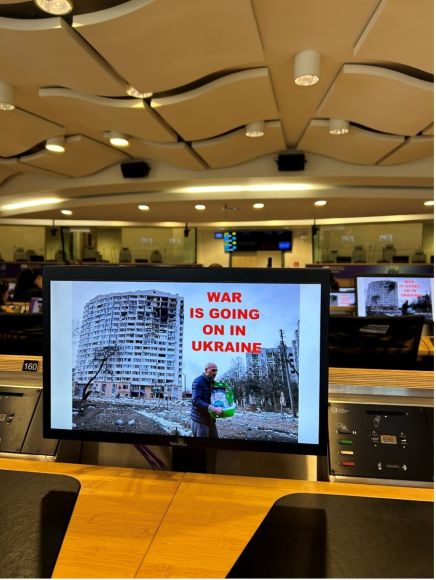
Since the start of Russia’s full-scale invasion of Ukraine in 2022, Ukraine has been fighting for the survival of its democracy and national sovereignty. From the very beginning, the EU stood by Ukraine’s side through implementing significant sanctions. Moreover, since June 2022, Ukraine has been officially given the EU candidate status. So far, the EU has also made available approximately €108 billion in financial, humanitarian and military support to Ukraine. How does this materialize? An event at the EU Regions Week gave some answers.
One example of EU’s support to Ukraine is the Flexible Assistance to Territories (FAST-CARE) package, extending upon the Cohesion's Action for Refugees in Europe (CARE), by offering further support and flexibility to Cohesion Policy funding. After all, EU Cohesion Policy not only reduces the socioeconomic gap between EU member-states and regions, preventing the formation of a two-tier Europe, but it also cultivates the proper conditions for the EU Enlargement Policy. The importance of EU Cohesion Policy was highlighted by the Vice President of the Committee of the Regions, Luca Menesini, during a speech on Tuesday 8 October 2024. According to him, the EU Cohesion Policy is just as vital for the development of EU candidates, as it is for member-states. Ukraine especially needs the policy’s funds for its reconstruction. Menensi: "Our priorities are to foster solidarity towards Ukraine, to reinforce its democratic orientation and to fight the nationalization of the Cohesion Policy.”
Pressing issues on places to live
For Andreas Jaadla, member of the Committee of the Regions Working Group on Ukraine, one of the most serious problems for both of the EU and the Ukrainian citizens is the lack of affordable housing. In the latter case, this is a consequence of the war, as the Russian invasion has triggered a significant rise in Ukrainian homelessness. However, thanks to the project "Towards Ukraine's Residential Reconstruction: A Capacity-Building and Cooperation Program for Housing Recovery in Kharkiv, Mykolaiv and Zhytomyr", EU and Ukraine are working together on housing policy reform, compensating damaged and destroyed properties.
Moray Gilland, Head of the Unit for Interregional and Transnational Cooperation in the European Commission, focuses on the impact of cross-border cooperation projects in transitioning underdeveloped countries or affected regions to new EU member-states with a new impetus: “By working through Interreg, we build relations with countries outside the EU borders, preparing them for the enlargement process. After all, Interreg has no geographical limits.” Or in other words: Building bridges is better than burning ones.
by Dimitrios Theologidis



